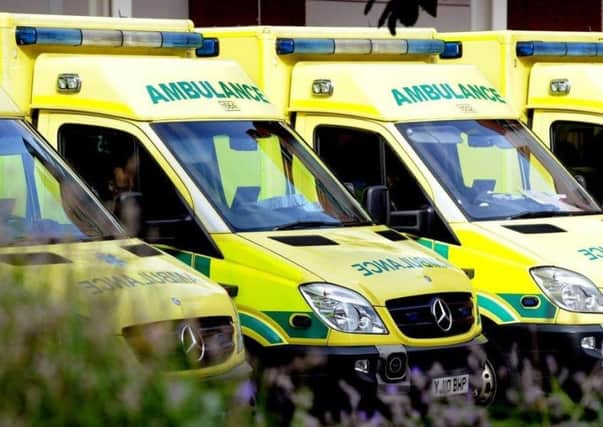The Paramedic: My living nightmare after being sexually assaulted answering a 999 call


The patient in question was in drink and had sustained a head injury and was doubly incontinent. From the moment myself and my colleague arrived, the patient became hostile and began spitting.
I quickly contacted the ambulance control room to ascertain if the patient was known to us, or to see if there were any issues I should be aware of. I heard nothing back to raise any concerns and so, with my colleague, we continued to work with the patient.
Advertisement
Hide AdAdvertisement
Hide AdAfter calming him and assisting him into the ambulance, he then became verbally aggressive towards my male colleague who was alone with him in the back of the ambulance.
In order to alleviate this and protect my colleague from the verbal abuse, I agreed that I would get into the back of the ambulance with the patient and my colleague would drive the vehicle to hospital.
While in the back of the ambulance, I began to take baseline medical observations as part of standard procedure. It was at this point the patient groped my right breast and began hitting out at me while using further inappropriate language towards me.
Advertisement
Hide AdAdvertisement
Hide AdHe then tried to light up a cigarette and became even more aggressive. It was then that we arrived at the local hospital with the patient and, fortuitously, encountered some colleagues who were able to assist myself and my colleague while the patient was transferred into the Emergency Department.
As I found out later, the patient’s actions were, in fact, a ploy and manipulation tactic so that he could gain one-to-one contact with me as the female member of our team. The patient is a known sexual predator who has a track record of becoming infatuated with females in uniform, and has previously assaulted a female police officer while in police custody.
As it transpired, the patient was well known to both the police and local NHS trust. Unfortunately, due to no formal links between the services, the care plan had not been communicated to Yorkshire Ambulance Service – and, in turn, to crew members like myself and my colleague.
Advertisement
Hide AdAdvertisement
Hide AdDue to data protection laws, and how Yorkshire Ambulance Service identify and manage patients such as the one who sexually and verbally abused me, there were, in fact, no existing warnings in place for this individual.
The patient had, in fact, already breached four behavioural orders, before the assault on myself and my colleague. He has since been given a custodial sentence of 39 months – 18 months of which relate to the sexual assault on myself.
As much as I have had a verbal apology from Yorkshire Ambulance Service in recognition of departmental failings, I have found it very difficult returning to my frontline duties and getting back on to an ambulance. I have only been able to achieve this through the constant support of family, friends and trade union colleagues.
On returning to work, I have begun taking a lead with my GMB colleagues and have engaged with Yorkshire Ambulance Service’s management to help improve the safety of staff and crews – no one should be exposed to the sexual and verbal assault I had to endure.
Advertisement
Hide AdAdvertisement
Hide AdYorkshire Ambulance Service has improved many aspects of the flagging up of abusive patients and updated a number of procedures. However much more work is still required to support staff who do a tremendously stressful job.
As ambulance crews, we are aware that not all risk can be taken out of our job. However, when someone known to pose a risk to emergency workers are not flagged on the system, this lack of communication is inexcusable.
Nationally, I have fed my experiences into the new Protect the Protectors Bill which reaches its final stages in the House of Commons today. After telling my story to Holly Lynch MP, she worked with the Government to make sure that the proposed law protects emergency service workers from sexual assault, as well as a raft of other types of assault.
I am fully supportive of these law changes as I feel 999 staff deserve the full backing of the law, sending a strong message which will not only discourage perpetrators from committing assaults, but encourage both employers – and the justice system – that assaults on emergency staff are unacceptable and must be treated with the utmost seriousness.
The author is a female paramedic in Yorkshire who was sexually assaulted while on duty.